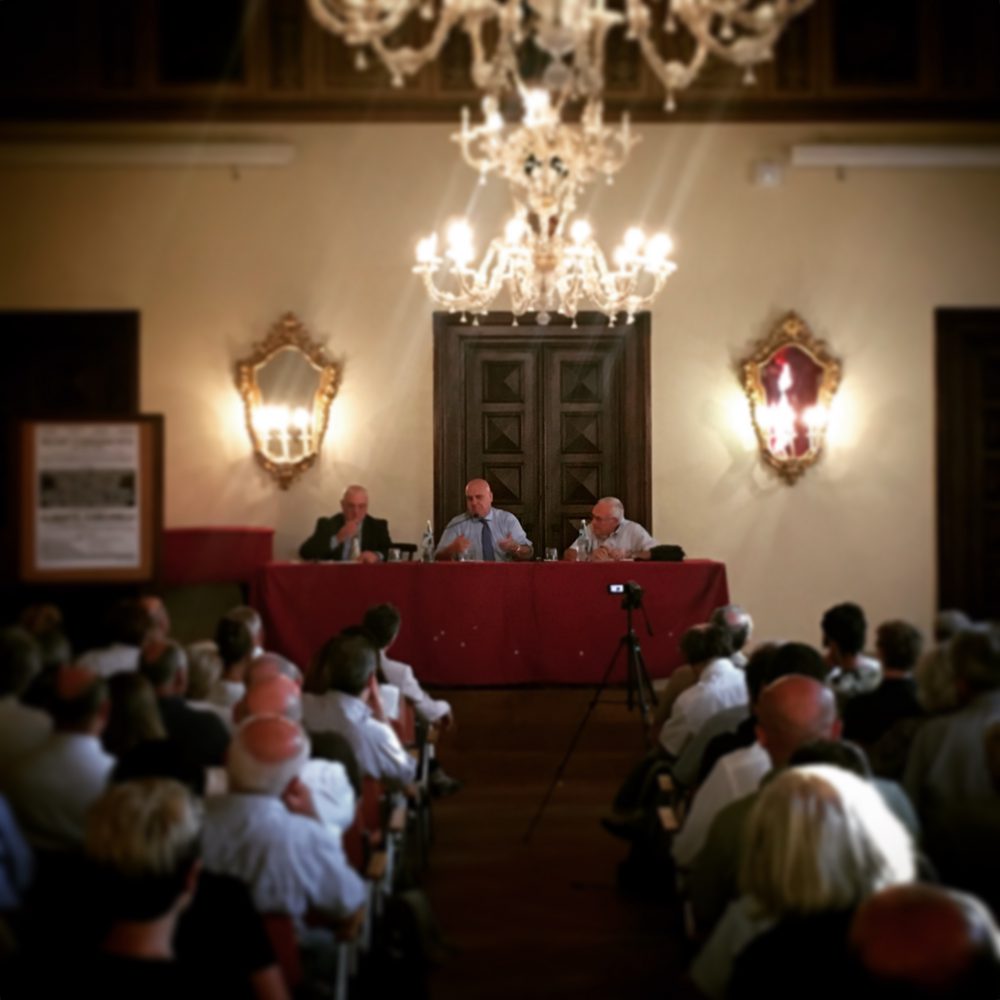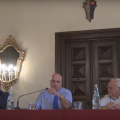By now, it has become a splendid custom to accept my friends’ invitations to tell my neighbors stories about what I’ve seen during the preceding year; therefore, here’s the summary—albeit long—of my speech at the Palazzo Sersanti in September. My speech concentrated on my focus of the moment: innovation.
In fact, you all know that I believe technological progress to be the only truly positive—even exciting— factor in the world today, with literally astonishing developments.
From the immigration from Libya to global warming and the nuclear-armed North Korean infantile idiot, from China’s expansionist tensions in the South China Sea to Islamic fundamentalism, and growing crime, the issues today worry everyone.
Furthermore, the economy doesn’t work, creating a trend coming from past years that for the present and future prefigures an epic stagnation where, without growth, debt will inevitably soar. There are too many productive structures of all kinds, especially in Asia, that create low investments and low returns. This was caused also by our quantitative easing, that compresses returns on financial investments: in the sense that citizen Forchielli is happy that Italy isn’t defaulting, but he doesn’t know where to put his savings to make them fruitful. Markets are at the max because interests are at a minimum and people put their money in the stock market, which is weary. Without a booming economy, real estate is depressed. And raw materials are at a minimum due to overproduction. In summary, to use a euphemism, the picture isn’t happy.
Before all of this, what have I noticed in the past year?
I noticed that in cities where employment rates in innovative sectors are high, wealth tends toward infinity. Real estate is sky-high, you can’t find a place to live, and there’s no unemployment. I mean, everything is great because where there are strong investments in technology, there are also great living conditions. These are the models: Boston, Silicon Valley, Berlin, Tel Aviv, and Shenzhen where a few kids became billionaires as global drone producers. In these cities, wealth is disproportionate and, especially, it’s collective because investments in technology pull along other traditional components of investments, like hospitality and services.
But how does it work? Why is innovation so strong?
Because of the enormous benefits we see on the horizon. For example, it’s thanks to biotechnology that life expectancy is increasing and a large portion of tumors can be treated. New medicines aren’t pharmacological but biological, capable of integrating directly with DNA to fight cancers. In five years, we’ll probably be able to manage Alzheimer’s and multiple sclerosis. The negative is that these treatments are still very expensive.
Also very powerful is the “internet of things,” which is the possibility to control things from a distance, your washing machine from the office or the optimization of industrial resources. Artificial intelligence, incredibly, can learn by itself. In this case the negative is at the occupational level, with professional categories declining in the future, like lawyers, doctors, financial advisors, bankers, etc. because machines will largely supplant these categories. While manual laborers—like gardeners, for example—are safe because replicating these jobs is still too costly.
Then there’s the shared economy of Uber and Airbnb. New lightweight and resistant materials. Robotics, which are very strong in China and Germany. And Fintech, which is finance that operates without human intermediaries. Live streaming broadcasting. Big data with its huge analysis potential. 3D printing with absolute precision, even in medicine. Renewable energies and energy storage. Drones in all categories, and last but not least, nanomaterials.
Will this landscape of innovation bring us something concrete?
Italy is behind in innovation; we’ve missed the boat because we don’t know how to build networks. We need to push universities and their districts. Our heroes are 30-man assault groups on “pigs” from WWII who the Navy SEALS copied. Our navy was more structured that the British, but they kicked our ass because we can’t build networks.
Italy lacks the culture of change and the educational structures to support it: classical high schools should be scaled back and possibly eliminated. We’re very attached to culture, to the classics and the history of our ancestors. The Romans—as in Empire—were giants. We’re dwarves.
Therefore, don’t expect a systems answer from me, because systems don’t exist where we’re from. Although, I believe in small districts, in families, and in micro-groups of work. I believe in individual responses and initiatives, in the recognition that new entrepreneurs are more scientists than businessmen.
Small districts can aggregate and even bring small private initiatives forward without public money, which are now gone after being wasted elsewhere.
In this sense, I told my friends in Imola to stop going to the Rotary Club, Lion’s Club, and Mason dinners to save money and invest in an innovation fund. Create scholarships for talented students without means, involve the banks, which are full of money they don’t know what to do with.
We should always cultivate talented youths and help them with contacts; in fact, the world has gotten smaller with the Internet. People can now work remotely. We need to modify our way of being. Open to the world. Change our children’s’ attitudes. Invest differently. I repeat: Italians are strong because of their individuality and creativity. It would be great to increase sharing; we’d need a shared understanding.
I have changed my habits. Years ago I was “mister China.” Not anymore. I moved to Boston to focus on technology, and I’m on the board of an innovation center at MIT because that’s where the future is. Unfortunately, at 60 I’m too old. Sometimes at MIT I don’t understand what they’re talking about but I stay there to learn something about science and seize the opportunity to invest in technology.
I will never get tired of telling young people they need to study as a function of a job. You don’t want to study math? Learn to cook. Paramedics can work anywhere!
In the end, however, I won’t retire to Florida. I’ll go back to Imola where, like I said, I’ll try to shut down the Masons, the Rotary, and Lion’s Club and I’ll focus on an innovation club or even just a Committee for Students.
Let’s act like renaissance gentlemen and encourage young people to orient themselves toward the future in this small but innovative world.




















Lascia un commento